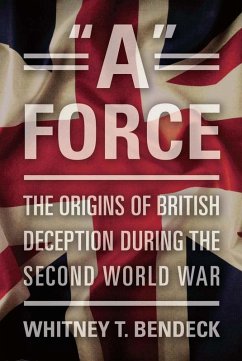"A" Force explores an area of World War II deception history that has often been neglected. While older studies have focused on the D-day deception campaign and Britain's infamous double-agents, this work explores the origins of Britain's deception activities to reveal how the British became such masterful deceivers. This is the first work to focus exclusively on "A" Force and the origins of British deception, examining how and why the British first employed deception in World War II. More specifically, it traces the development of the "A" Force organization-the first British organization to practice both tactical and strategic deception in the field. Formed in Cairo in 1941, "A" Force was headed by an unconventional British colonel named Dudley Wrangel Clarke. Because there was no precedent for Clarke's "A" Force, it truly functioned on a trial-and-error basis. The learning curve was steep, but Clarke was up for the challenge. By the Battle of El Alamein, British deception had reached maturity. Moreover, it was there that the "deceptionists" established the deception blueprint later used by the London planners to plan and execute Operation Bodyguard, the campaign to conceal Allied intentions for the D-day landing at Normandy. In contrast to earlier deception histories that have tended to focus on Britain's later efforts emphasizing Operation Bodyguard, this work clearly shows that this strategy was forged much earlier in the deserts of Africa under the leadership of Dudley Clarke, not in London. Moreover, it was born not out of opportunity, but out of sheer desperation, when in June 1940 the British found themselves completely unprepared for war.
Dieser Download kann aus rechtlichen Gründen nur mit Rechnungsadresse in A, D ausgeliefert werden.









